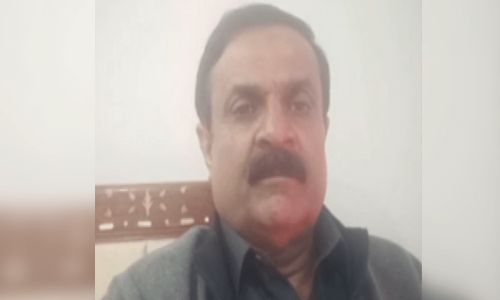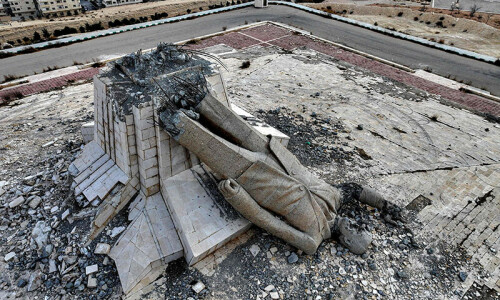THE recent construction of a temple on the grounds where the historic Babri Mosque once stood in India signifies not only a disregard for the country’s secular foundations, but also the unsettling consequences of divisive politics. The celebration surrounding the temple’s inauguration may be touted as religious, but some elements of it extended beyond the spiritual realm. It was a part of the larger message to the religious minorities, particularly Muslims that the ‘new India’ belongs exclusively to Hindus, and inclusivity has no place on the national agenda anymore.
The response from the Indian National Congress, which initially dismissed the event as a ‘political spectacle’, but later decided to attend, highlights the pressures influencing the overall political narrative.
The destruction of the Babri Mosque during the Congress government in 1992, and the subsequent failure of New Delhi to prevent it highlight a broader trend. The erosion of secular values is evident in the partisan attitude of state organs, raising questions about the commitment of these institutions to uphold the rule of law when it comes to Hindu communal elements.
The current scenario, where the ruling Bharatiya Janata Party (BJP) is contem- plating a move to amend the Indian Constitution to declare India a Hindu state, has intensified the concerns of the religious minorities.
India’s display of chauvinism became particularly evident in recent events. For instance, on Aug 5, 2019, it revoked the special status granted under Article 370 to Jammu and Kashmir; a decision that continues to evoke deep controversy. The unilateral move was followed by an extensive clampdown, involving the suspension of communication lines in the Kashmir valley for months, and the detention of key politiciansi in Kashmir. The attempt to stifle dissent was inten- tionally not kept covert.
The revocation of Article 370, stripping occupied Jammu and Kashmir of its special status, further contributed to the diminishing sense of inclusivity.
Widely rebuked, the move not only altered the region’s political landscape, but also raised concerns about the protection of minority rights and autonomy. The impact of the controversial decision reflected a broader shift in the pattern of India’s governance and its implications for its diverse communities.
The global community must take note of the alarming trends, and emphasise the critical need to protect pluralism, secularism and democratic values in the face of escalating religious chauvinism.
Majid Burfat
Karachi
Published in Dawn, February 5th, 2024












































Dear visitor, the comments section is undergoing an overhaul and will return soon.